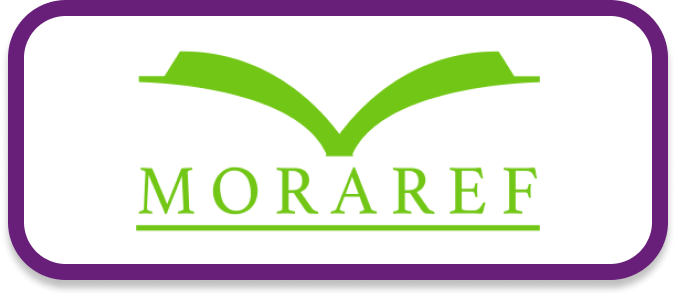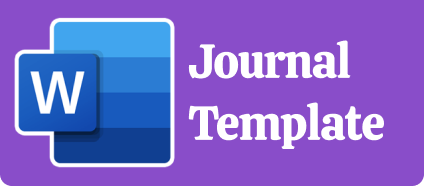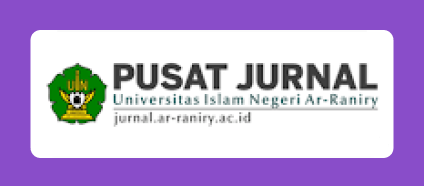KEMAMPUAN ANALISIS MASALAH MAHASISWA PGMI DALAM PEMBELAJARAN DARING (ONLINE) PADA MASA COVID 19
Abstract
The covid 19 pandemic exposes universities to be able to carry out the learning process online. This is a challenge for PGMI lecturers to prepare appropriate teaching materials and strategies in order to be able to improve students' analytical skills in understanding online lecture material. The purpose of this study was to determine the problem analysis skills of PGMI IAIN Lhokseumawe students in the online learning process during the Covid 19 pandemic and student responses to the implementation of online learning during the Covid 19 pandemic. This study used descriptive qualitative research methods with the subject of second semester students of PGMI IAIN Lhokseumawe, data collection was carried out through interviews, observation and documentation study. From the research results, it was found that the majority of students already had good analytical skills where the results of the interviews revealed that students had been able to choose important material concepts and identify them into sub-material so that they were easy to understand. Students' analytical skills cannot be separated from the role of lecturers in choosing strategies and preparing appropriate learning media and being able to use information technology well. It can be concluded that the analytical skills of PGMI students in online learning look better. This can be seen from the student's ability to analyze problems with the lecture material given, namely being able to transform information and connect the material with real conditions in learning at MI.
Keywords
Full Text:
PDFReferences
Annur, Muhammad Firman. “Analisis Kesulitan Mahasiswa Pendidikan Matematika.” Jurnal kajian, Pnelitian dan Pengembangan Kependidikan 6356 (2020): 195–201.
Arnesti, Novita, and Abdul Hamid. “Penggunaan Media Pembelajaran Online – Offline Dan Komunikasi Interpersonal Terhadap Hasil Belajar Bahasa Inggris.” Jurnal Teknologi Informasi & Komunikasi Dalam Pendidikan 2, no. 1 (2015).
Chandrawati, Sri Rahayu. “172 Pemamfaatan.” Jurnal Cakrawala Pendidikan 8, no. 2 (2010): 172–181.
Dewantara, Dewi. “Perbedaan Kemampuan Analisis Mahasiswa Antara Pembelajaran Berbantuan Schoology Dan Edmodo Pada Mata Kuliah Fisika Biologi.” Prisma Sains : Jurnal Pengkajian Ilmu dan Pembelajaran Matematika dan IPA IKIP Mataram 6, no. 1 (2018): 1.
Hamdani. Strategi Belajar Mengajar. Bandung: Pustaka Setia, 2011.
Horo, Anikita; Jagruti Das. “Perception of Students towards the Offline and Online Modes of Learning during Perception of Students towards the Offline and Online Modes of Learning during COVID-19 Lockdown,” no. September (2020).
Kemendikbud. Surat Edaran Mendikbud No 4 Tentang Pelaksanaan Kebijakan Pendidikan Dalam Masa Darurat Penyebaran Corona Virus Diseases Covid - 19. Jakarta, 2020. https://www.kemdikbud.go.id/main/blog/2020/03/se-mendikbud-pelaksanaan-kebijakan-pendidikan-dalam-masa-darurat-penyebaran-covid19.
Nahdi, Dede Salim. “Analisis Literasi Digital Calon Guru Sd Dalam Pembelajaran Berbasis Virtual Classroom Di Masa Pandemi Covid-19.” Jurnal Cakrawala Pendas 6, no. 2 (2020): 116–123.
Nursalam, N; Ferry Efendi. Pendidikan Dalam Keperawatan. Jakarta: Salemba Medika, 2008.
Sugiyono. Metode Penelitian Kuantitatif, Kualitatif, R & D. Bandung: Alfabeta, 2016.
Suharsimi, Arikunto. Prosedur Penelitian: Suatu Pendekatan Praktik. Jakarta: Rineka Cipta, 2016.
Suharso; Ana Retnoningsih. Kamus Besar Bahasa Indonesia. Semarang: Widya Karya, 2017.
Sukmadinata, Nana Syaodih. Metode Penelitian Pendidikan. Bandung: Remaja Rosda Karya, 2016.
Sun, Anna, and Xiufang Chen. “Online Education and Its Effective Practice: A Research Review.” Journal of Information Technology Education: Research 15, no. 2016 (2016): 157–190.
Surwanto. Pengembangan Tes Diagnostik Dalam Pembelajaran. Yogyakarta: Pustaka Pelajar, 2013.
Uno, Hamzah B; Nurdin M. Belajar Dengan Pendekatan PAILKEM: Pembelajaran Aktif, Inovatif, Lingkungan, Kreatif, Menarik. Jakarta: Bumi Aksara, 2011.
Yuliantini, Nani. “Analisis Pemahaman Konsep Pembelajaran Tematik Integratif Menggunakan Sistem Pembelajaran Daring Berbasis E-Learning Moodle Pada Mahasiswa Pendidikan Guru Sekolah Dasar Universitas Bengkulu” 6, no. 3 (2020).
DOI: http://dx.doi.org/10.22373/pjp.v9i2.8992
Refbacks
- There are currently no refbacks.
Copyright (c) 2021 Sarah Fazilla

This work is licensed under a Creative Commons Attribution-ShareAlike 4.0 International License.

























